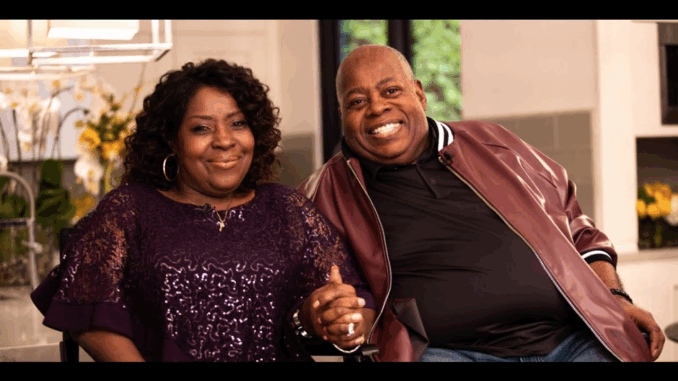
The Heartbeat of Family Matters
If you grew up watching Family Matters, you know that Harriette and Carl Winslow were more than just characters—they were the bedrock of what American family life looked like in the ’90s. This dynamic couple symbolized love, resilience, and partnership in an era when television was beginning to portray Black families in a genuine and relatable light. But what made Harriette and Carl’s marriage stand out in the sea of TV couples? Let’s dive into their story and uncover why their relationship became a cultural icon.
Who Are Harriette and Carl Winslow?
Meet Harriette Winslow: The Pillar of Strength
Played by Jo Marie Payton, Harriette was the epitome of a modern ’90s mom—smart, hardworking, nurturing, and fiercely devoted to her family. As a working mother juggling a busy household, she reflected the changing role of women during that decade.
Carl Winslow: The Loving, Grounded Father
Reginald VelJohnson’s Carl was the quintessential dad: protective, loving, and often the source of comic relief. As a Chicago police officer, Carl represented authority and moral backbone, balancing discipline with warmth.
Why Their Marriage Resonated With ’90s America
Representation That Mattered
At a time when Black families were underrepresented or stereotyped on TV, Harriette and Carl showed a healthy, functional marriage filled with ups and downs just like any other family.
A Team Effort: Partnership Over Perfection
Their marriage wasn’t flawless, but that’s what made it real. They worked as a team, navigated disagreements, and supported each other, teaching viewers the importance of cooperation and compromise.
How Harriette and Carl Defined ’90s Family Values
Commitment Through Thick and Thin
The Winslows faced challenges head-on—from parenting teens to financial hurdles—yet their commitment to each other never wavered.
Showing Respect and Communication
Unlike many sitcom couples of the time, Harriette and Carl frequently communicated openly and respectfully, giving audiences a model for healthy conflict resolution.
Key Moments That Cemented Their Iconic Status
The Balancing Act of Work and Home
Harriette’s career as a lunch lady and Carl’s demanding police job showcased the juggling act many families face, making their story relatable and inspiring.
Parenting Winslow Style
Their approach to raising children—strict but loving—highlighted generational challenges and the importance of family unity.
What Made Their Chemistry So Real?
Natural, Genuine Performances
Jo Marie Payton and Reginald VelJohnson brought authenticity to their roles. Their on-screen rapport felt genuine, grounded in mutual respect and love.
Humor and Heart Combined
The couple’s ability to infuse humor into serious moments made their relationship multidimensional and engaging for audiences.
Lessons We Can Learn From Harriette and Carl Winslow’s Marriage
The Power of Forgiveness
Their occasional disagreements ended in forgiveness, showing that love often requires letting go and moving forward.
Teamwork as a Marriage Foundation
By dividing responsibilities and supporting each other, they demonstrated how marriage is a partnership, not a solo act.
The Cultural Impact of the Winslows’ Marriage
Changing TV Narratives
Harriette and Carl helped shift the portrayal of Black families on television, inspiring shows to depict more realistic, positive family dynamics.
Inspiring Real-Life Couples
Fans often cite the Winslows as a source of inspiration for their own relationships, proving the power of relatable storytelling.
Behind the Scenes: Actors’ Insights on Playing Harriette and Carl
Jo Marie Payton’s Take on Harriette
Payton has spoken about the pride she felt portraying a strong, independent woman balancing family and work with grace.
Reginald VelJohnson on Carl’s Role
VelJohnson emphasized Carl’s role as a protector and provider who also showed vulnerability, making him a well-rounded character.
How the Winslows Represented Broader Social Issues
Gender Roles and Expectations
Their marriage challenged traditional gender roles by showing Harriette’s career importance and Carl’s emotional openness.
Navigating Urban Family Life
Set in Chicago, Family Matters used the Winslow family to address social themes like community, safety, and education.
The Winslow Legacy in Modern Television
Paving the Way for Diverse Family Portrayals
The Winslows laid the groundwork for future shows featuring diverse, multidimensional families.
A Blueprint for Authentic Relationships
Their marriage remains a gold standard for depicting real-life marriage struggles and triumphs on screen.
Revisiting the Winslows in Today’s Context
Why Their Story Still Speaks Volumes
Even decades later, their story resonates because it’s built on timeless values—love, respect, and resilience.
Lessons for Modern Couples
In today’s fast-paced world, their steady, patient partnership offers valuable insights for building lasting relationships.
Conclusion: Harriette and Carl Winslow’s Enduring Influence on Marriage and Family
Harriette and Carl Winslow didn’t just entertain us—they gave us a mirror to see what real marriage looks like. Their story combined humor, challenges, and heartfelt moments that made them relatable and inspiring. They became the emblem of ’90s American marriage, teaching us about partnership, respect, and unconditional love. As we revisit their legacy, one thing is clear: the Winslows showed us that marriage isn’t about perfection, but about sticking together through life’s ups and downs.
FAQs
1. What made Harriette and Carl Winslow’s marriage so relatable to viewers?
Their marriage portrayed real challenges and emotions, emphasizing teamwork, communication, and respect.
2. How did Family Matters depict the Winslow family differently from other ’90s shows?
It presented a Black family with depth and authenticity, avoiding stereotypes and highlighting everyday life.
3. Did Harriette and Carl face serious marital issues on the show?
Yes, they had disagreements and struggles, but always resolved them through communication and love.
4. How did the actors’ real-life chemistry influence their portrayal?
Their natural rapport helped bring genuine emotion and humor to the relationship.
5. What lessons can modern couples learn from the Winslows?
The importance of patience, forgiveness, teamwork, and unconditional support in marriage.
